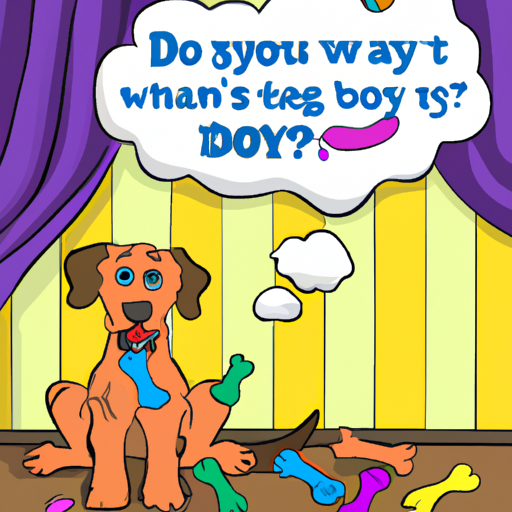If you’re a dog owner, you’ve probably noticed that your furry friend loves to chew on toys. You might have even had to replace a few because they’ve been chewed to oblivion. But have you ever wondered why dogs chew on toys? It’s not just because they’re fun; there’s actually a variety of reasons that range from instinct to dental health. In this article, we’re going to delve into the world of canines and their love for chewing toys.
- Table of Contents
- Understanding Canine Instincts
- Chewing Toys and Dental Health
- Toys as a Means of Training
- Toys for Mental Stimulation
- Choosing the Right Toys for Your Dog
-
Key Takeaways
- Dogs chew on toys due to natural instincts, dental health, training purposes, and mental stimulation.
- Choosing the right toy for your dog depends on their size, breed, and chewing habits.
- Regularly inspect your dog’s toys for signs of wear and tear to prevent any choking hazards.
Understanding Canine Instincts
Dogs are descendants of wolves, and many of their behaviors stem from their wild ancestors. Chewing is an instinctual behavior that dogs use to explore their environment and relieve stress. It’s also a natural way for them to clean their teeth and strengthen their jaws. Toys provide a safe outlet for this instinct. One Top Dog has a detailed article on the importance of understanding your dog’s instinctual behaviors.
Chewing Toys and Dental Health
Chewing on toys can also benefit your dog’s dental health. It helps to scrape away plaque and tartar, promoting healthier gums and teeth. Some toys are even designed specifically for dental health, like the Kong Classic Dog Toy. According to the American Kennel Club, regular chewing can help prevent dental diseases in dogs.
Toys as a Means of Training
Toys can be a great training tool for dogs. They can be used as a reward for good behavior or to teach your dog new tricks. For example, you might use a chew toy as a reward for sitting or staying. Additionally, toys can help redirect your dog’s chewing habits away from furniture and other inappropriate items. Check out One Top Dog’s guide on how to train your dog using toys.
Toys for Mental Stimulation
Just like humans, dogs need mental stimulation to stay happy and healthy. Toys can provide that stimulation, especially ones that challenge them mentally. Puzzle toys, for example, require your dog to figure out how to get to the treat inside, providing mental exercise as well as physical. One Top Dog has a list of recommended puzzle toys for dogs that can help keep their minds sharp.
Choosing the Right Toys for Your Dog
When choosing toys for your dog, it’s important to consider their size, breed, and chewing habits. Large dogs or heavy chewers might need more durable toys, while smaller dogs or puppies might prefer softer, smaller toys. Always monitor your dog while they’re playing with a new toy to ensure it’s safe for them. Regularly inspect toys for signs of wear and tear, as broken pieces can pose a choking hazard.
Frequently Asked Questions
1. Why does my dog destroy their toys?
Some dogs are simply heavy chewers and enjoy the process of tearing apart their toys. It’s important to provide these dogs with durable toys designed for heavy chewing to prevent them from swallowing any broken pieces.
2. How often should I replace my dog’s toys?
This largely depends on your dog’s chewing habits. If your dog is a heavy chewer and the toy is showing signs of wear and tear, it’s time to replace it.
3. Are there any dangers associated with my dog chewing on toys?
The main danger is a choking hazard if the toy breaks into small pieces. Always supervise your dog while they’re playing with toys, especially new ones, and regularly check for signs of damage.
With a better understanding of why your dog loves to chew on toys, you can provide them with the right toys to meet their needs and keep them happy and healthy. It’s just one of the many ways you can show your dog how much you care.
References:



